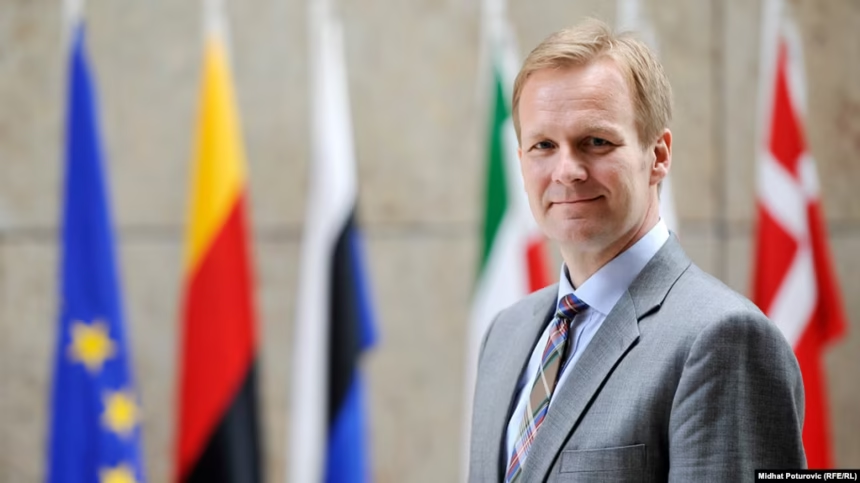Kaja Kallas, the EU High Representative for Foreign Affairs and Security Policy, has appointed Danish diplomat Peter Sorensen as the new Special Representative for the Kosovo-Serbia dialogue. Sorensen will succeed Miroslav Lajčak, whose term ends on January 31, reports RFE.
Sources within the EU confirmed that Sorensen’s name has been submitted for approval to the member states of the EU. His candidacy is expected to be confirmed at the upcoming Political and Security Committee (PSC) meeting, where representatives from all EU member states will review the nomination.
While the confirmation process is typically a formality, as Kallas has already chosen Sorensen for the role, it is expected that the approval will come by the end of the month, with Sorensen assuming his duties in early February.
Sorensen, a seasoned diplomat with extensive experience in the EU, is currently a senior advisor for Digital Diplomacy in the European External Action Service (EEAS). He has previously served in key diplomatic roles, including as the EU Special Representative for Bosnia and Herzegovina, Head of the EU Office in Sarajevo, and Head of the EU Delegation in Skopje. Sorensen also has experience working in Kosovo with the United Nations Mission (UNMIK) and in Serbia.
His extensive experience in the Western Balkans is seen as a key reason for his selection as the new envoy. Unlike his predecessor Lajčak, Sorensen’s role will be solely focused on the Kosovo-Serbia dialogue and will not include broader responsibilities in the region.
Under Lajčak’s almost five-year tenure, Kosovo and Serbia reached a legally binding agreement on the normalization of their relations, though implementation has been slow. The EU has criticized both Kosovo and Serbia for failing to begin implementing the agreement, warning that this could hinder their European integration paths.
The EU-mediated dialogue between Kosovo and Serbia began in 2011, and while several agreements have been reached, few have been fully implemented.







